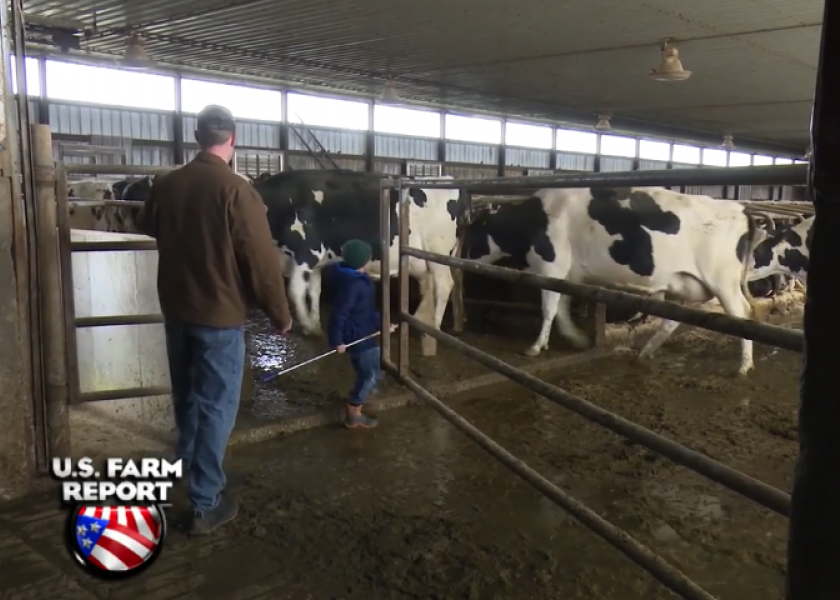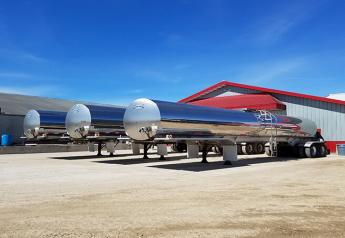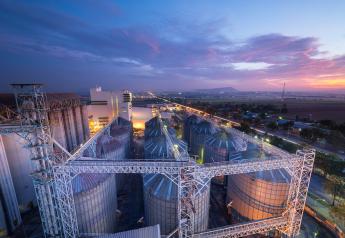Grassland Dairy Dump: Is Canada Really to Blame?

The Gartman family milks more than 100 head of cows a day. It’s both their passion and their livelihood, and it's always a family affair.
Luke Gartman, a co-owner of the operation, and his brother Matt are the seventh generation on the farm, and their kids are the eighth generation.
The first week of April, they faced one of their biggest fears as they received a letter from Grassland Dairy Products, notifying them they had to find a new processer for their milk in 30 days, not even marked as urgent.
“It says, ‘Respectfully, Grassland Dairy Products, but was it signed by the president?” said Matt Gartman. “No, it's just a generic letter.”
“You didn't get a phone call?” asked Tyne Morgan, host of U.S. Farm Report.
“No, in fact before I read [the letter], I found out on Facebook,” replied Matt.
They faced a similar obstacle two years ago with a processor in Sheboygan.
“At that time, we had more lead time,” said Luke. “We had about a three month lead time notice, and they helped us find a home.”
That home was Grassland Dairy, a processor they hoped to have for the long-haul.
Goedhart Westers, vice president of business development for Grassland Dairy, told Farm Journal’s Milk Magazine that Grassland received a two-day notice that their Canadian market was gone, a destination worth 1 million pounds of milk a day.
“We are working with our patrons to find a home for their milk, but we understand it's a challenge in these markets…. the last thing we as a company want is to let farmers go,” said Westers.
However, 75 dairy farmers received the same letter. While a handful already found a home, the majority are left with no answers as to where their milk will go.
“75 farmers in Wisconsin, there are 9,200 dairy producers, it's a small percentage, but the big part is it's a big anxiety for all producers,” said Bryan Doherty, senior market advisor of Stewart-Peterson.
Mike North, president and founder of Commodity Risk Management Group, calls the situation unprecedented.
“This is a very different situation, because it has more to do with politics and less to do with markets or bad financial situations that are broader than agriculture itself,” said North.
North says this dates back to General Agreement on Trade in Services (GATT) from the 1990s when Canada decided to take a protective stance on its dairy industry, creating a quota system. North says Canada isn't necessarily to blame.
“They really didn't change their position, they just cleaned up some of the loose ends that existed since that position was first taken,” said North. “Ultimately, I wouldn't blame them, so to speak, but at the same time, their action is what quickly caused this scenario.”
While some dairy groups hope renegotiating the North American Free Trade Agreement (NAFTA) will help the bleeding, that doesn't solve the issue today. North says this couldn't come at worse time, as the industry faces over-supply while fighting through spring flush where the cows produce more.
“If this whole affair wouldn't have taken place in April but rather in July, none of this conversation would have been had,” said North.
Dairy farmers are seeing price pressure across the board as prices continue to erode.
“We've got better days ahead, but unfortunately, we're stuck in this downturn right now that hasn't shown a clear sign that it's bottomed,” said Doherty.
If the Gartman family hadn't found a home for their milk, they would be forced to sell their cows, but by securing a new buyer, it’s renewing hope for the future.
Instead of the signs and stalls in the barn becoming remnants of their past, it will remain a prominent part of their future, opening a new door for the eighth generation.







